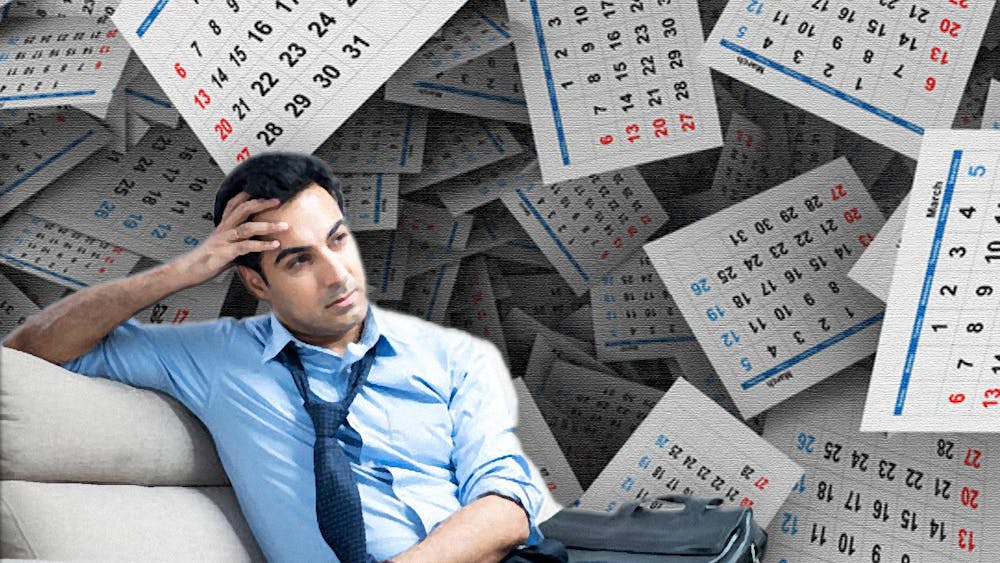For the first time since 2006, North American summer box-office revenue will not reach four billion dollars. Ticket sales will have fallen 16 percent since last year — the largest drop in the modern movie era. Franchise films like “The Mummy” and “Transformers 5”performed far below expectations. Though “Wonder Woman” and “Spider-Man: Homecoming” both received outstanding reviews, good word-of-mouth was not enough to save the season for the big studios. The summer movie season, it seems, just isn’t what it used to be.
Perhaps this has a lot to do with the fact that your average summer blockbuster isn’t reserved for summer anymore. Not long ago, studios would typically only release their big-budget tentpole films in June and July. That’s not possible today. The landscape is just too crowded to confine these films to a few months of the year. It feels like every film being released today is part of a franchise in one way or another. Originality looks like a thing of the past. There are over 200 sequels, prequels, reboots and adaptations confirmed to be in production through 2022 in Hollywood. This includes four sequels to James Cameron’s 2009 film “Avatar” and six more additions to the Marvel Cinematic Universe. Pixar has a fourth “Toy Story” and “The Incredibles II” in the works, and it looks like we’ll be getting a new Star Wars film every Christmas for the foreseeable future. Revenue isn’t down for these movies because they’re bad, necessarily. Revenue is down because there’s just too many of them. We are suffering from a bad case of franchise fatigue.
Thankfully, there exists the perfect remedy. It’s called an independent property.
An independent property (IP) is a film that has come from an entirely original idea. It’s not a sequel to an earlier film, it’s not adapted from a book, it’s not a reboot of a franchise or a remake of another piece of cinema. It’s just a new movie. For several years now, Hollywood has been profoundly lacking in IPs. In the era of big-name actors and pricey CGI, movies are more expensive than ever to produce. Couple this with better at-home entertainment systems and unjustifiably high theatre prices, and movie studios are understandably concerned about spending the money to produce a film and then being able to recoup their investment. They think IPs are a major risk; they believe moviegoers are more likely to see something they already know at least a little about than something entirely new. The logic has made the studios billions over the past decade. It also, however, leads studios to invest in familiar choices over better, more original ideas.
That trend is finally reversing. This summer, a movie called “Baby Driver” (directed by Edgar Wright) opened to rave reviews. On nothing but its own merits, on word of mouth and critical acclaim, the movie has become wildly successful. So far, Baby Driver has grossed over $193 million against a budget of just $34 million. The success of Baby Driver and the failure of several big-budget franchise films this year demonstrates that independent properties can still do well at the box office. For the average viewer, it doesn’t matter if it’s a movie they are familiar with or not. If a movie is good, people will pay to see it.
It’s time for a rebirth of independent properties. For far too long now, Hollywood has rejected originality in favor of safety, no doubt depriving us of amazing stories. I love Star Wars. I’ll be at the midnight premiere of The “Last Jedi” this December. But the last thing I want is to live in a time where the only movies made are Star Wars movies. The world is far too big and the human imagination far too boundless to limit ourselves to the stories we’ve already told.
What’s the next Star Wars, what’s the next Harry Potter? Who will have the next beautiful creative idea that will change popular culture, that will become ingrained in our social consciousness for decades? If we don’t give more independent properties a chance, we’ll never find out. Thousands of screenwriters are writing thousands of scripts that tell thousands of stories — stories they want to share with the rest of the world. There’s a ton of great ideas out there. I can’t wait to see them on the screen.
The summer blockbuster is dying — and we should let it
The views expressed in this column are those of the author and not necessarily those of The Observer.









